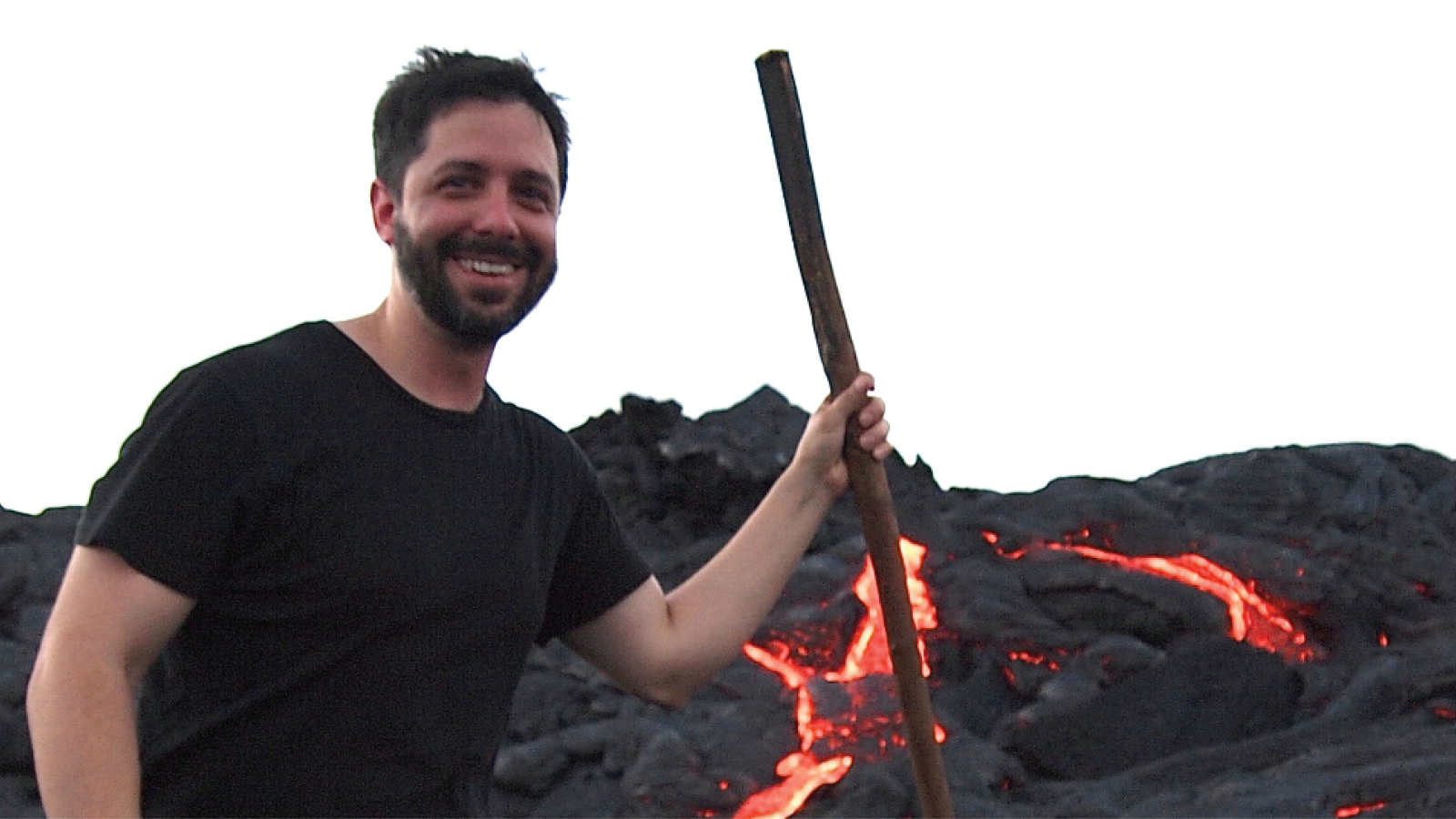Lawrence Febo
Lawrence Febo earned his B.S. and M.S. in Geology from SES in 1999 and 2003, respectively, before going on to obtain his Ph.D. from Louisiana State University in 2007. Lawrence is a Senior Biostratigrapher at Chevron and works at the Houston office.
Contact: Lawrence.febo@chevron.com
"Take the fundamental geology classes, and don’t be afraid to ask questions when things don’t make sense, because nine times out of ten, it probably doesn’t make sense to others too. In addition to the core classes, step out of your comfort zone and take some courses in programming or machine learning, and take classes in statistics…as many as you can stomach."
Where has your degree taken you?
Geology has been a lifelong passion and there was never any doubt that I would be pursuing a career of some sort in the field, but I always thought that I would be a vertebrate paleontologist…who doesn’t love dinosaurs! I worked through my degrees one at a time, with a BS and MS at OSU and then a Ph.D. at Louisiana State University. OSU gave me the fundamentals and LSU gave me the opportunity to specialize in marine geology and paleoceanography. Academia was my ultimate pursuit and I never veered from that direction until the summer of 2003 when I took a summer internship at BP, which opened my mind to other possibilities.
Academia didn’t really prepare me for the idea that geoscience in the industry setting would be as intellectually stimulating as academic pursuits. After completing my Ph.D. in 2007, I still had grand visions of pursuing academia, but I ultimately went to work for BP as a biostratigrapher and settled down into the warmth of corporate geoscience. Early career life as a biostratigrapher was a lot of fun. It allowed me to go offshore to drilling platforms, with a microscope alongside, and help subsurface teams make real-time drilling decisions. However, it all changed in 2010.
On April 20th, 2010, the Deepwater Horizon disaster shook the nation with catastrophic loss of life on an offshore drilling platform and drastic environmental damage that threatened entire ecosystems. Along with changes for so many, my career also changed. After the incident, I joined the Emergency Response Team to help deal with the aftermath of the disaster and quickly went from a biostratigrapher to the scientific leader of a large marine research vessel tasked with surveying the magnitude of spilled hydrocarbons and characterizing their composition and areal extent. That involved designing and coordinating acoustical marine surveys and real-time marine geochemistry of sea water, knowledge of two subjects that started in the SES at Ohio State. After a year and a half in the service of the response team, I then got back to my regular responsibilities. However, I consider the impact of that work to be among the most significant of my career.
In 2013, I joined Chevron to work biostratigraphy projects in basins around the world including the Niger Delta, the Gulf of Mexico, Brazil, and Kurdistan. I never could have imagined the scale and extent of projects that I would be working while in industry, much less the amount of geological knowledge that you need to bring to bear every day.
How do you feel your experience, specifically as an SES/geology student at OSU, prepared you for your career or life in general?
Ohio State provided a solid foundation of knowledge on the subject matter that has made the foundation for everything else that’s followed. Having taken a solid curriculum of the core geoscience subjects and doing a senior thesis set the stage for all my graduate work and enabled me to come up with a truly original idea for my dissertation. Whether its hard rock, soft rock, paleo, geochem, structure, or geophysics, you need to know them all to be effective communicators with your colleagues and gain insights from other disciplines through collaboration. I didn’t enjoy geophysics or mineralogy at the time, but I am glad that I had to take them. I hope that the School of Earth Science is still emphasizing the core curriculum and senior theses.
What is your favorite memory as a student?
Field camp was my favorite part of the undergraduate experience. The opportunity to spend six weeks mapping rock units in arguably some of the most beautiful parts of the country really made all the geologic concepts stick. While mapping in the field, I will never forget asking Larry Krissek or Terry Wilson for help on multiple occasions only to have them tell me “that’s a good working hypothesis, testable by mapping” and then just leave it at that. It really forced me to just map the rocks and test out my ideas on my own. The idea of “multiple working hypotheses” that are “testable by mapping” is a lesson that has served me well in my professional career, and it is one that I emphasize throughout the earth science department at Chevron.
What advice do you have for current and future students?
Take the fundamental geology classes, and don’t be afraid to ask questions when things don’t make sense, because nine times out of ten, it probably doesn’t make sense to others too. In addition to the core classes, step out of your comfort zone and take some courses in programming or machine learning, and take classes in statistics…as many as you can stomach.
Technology is moving fast in the industry. We are hearing so much about the fuzzy buzz words of “data analytics” and “machine learning” and trying to figure out how they intersect with our disciplines. Geoscientists of the future will either need to understand the technology or be knowledgeable enough to at least communicate with the people who do it for us.
And finally, never forget your Brunton Compass in your room while you’re at field camp. If you must borrow one from the professors, be sure to check the magnetic declination first.

